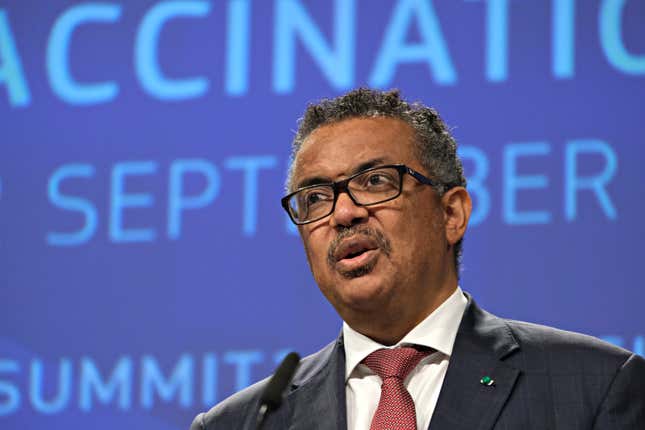
After two years of dealing with COVID-19, the world is on alert about another infectious disease that could be making its way to the United States. As of May 21, the World Health Organization has learned of 92 confirmed cases and 28 suspected cases of monkeypox in places where the disease is not normally spread, including Massachusetts, New York and Washington State.
And although “a significant proportion” of recently reported monkeypox cases have been discovered among gay and bisexual men, the WHO is warning that the disease can be transmitted through close contact and that anyone can potentially be at risk. That’s why the United Nations Aids agency is warning the media to take racist and homophobic rhetoric out of their news coverage.
In a May 22 statement, UNAids sounded the alarm, calling depictions of Africans and LGBTQ individuals in the media’s coverage of the monkeypox virus both racist and homophobic. And they are warning that the stigma created around disease could have an impact on the world’s response.
“Stigma and blame undermine trust and capacity to respond effectively during outbreaks like this one,” said UNAIDS deputy executive director, Matthew Kavanagh. “Experience shows that stigmatizing rhetoric can quickly disable evidence-based response by stoking cycles of fear, driving people away from health services, impeding efforts to identify cases and encouraging ineffective, punitive measures.”
According to the WHO, monkeypox is a virus similar to smallpox. Those with the disease usually have a fever, rash and swollen lymph nodes that lasts between two and four weeks. The fatality rate is less than 10 percent. Although the disease is commonly found in certain African nations, recent cases discovered in Europe, Canada and the U.S. have raised alarm around the rest of the world. When asked about the recent reports of outbreaks, President Biden said, “They haven’t told me the level of exposure yet, but it is something that everybody should be concerned about.” The White House national security adviser added that the country has vaccines ready to deploy if needed.
You don’t have to look too far to see the impact of bias in media coverage around diseases. A study from the Center for the Study of Hate and Extremism showed an increase in anti-Asian violence between 2020 and 2021 due to blame for the COVID-19 pandemic. And the first news stories around HIV and AIDS in the early 80s, labeling the disease as a “cancer found in homosexual men,” led to confusion, increased homophobia and in some cases, violence. UNAids doesn’t want to see the same thing happen with monkeypox. “Stigma hurts everyone. Shared science and social solidarity help everyone,” Kavanagh said.

